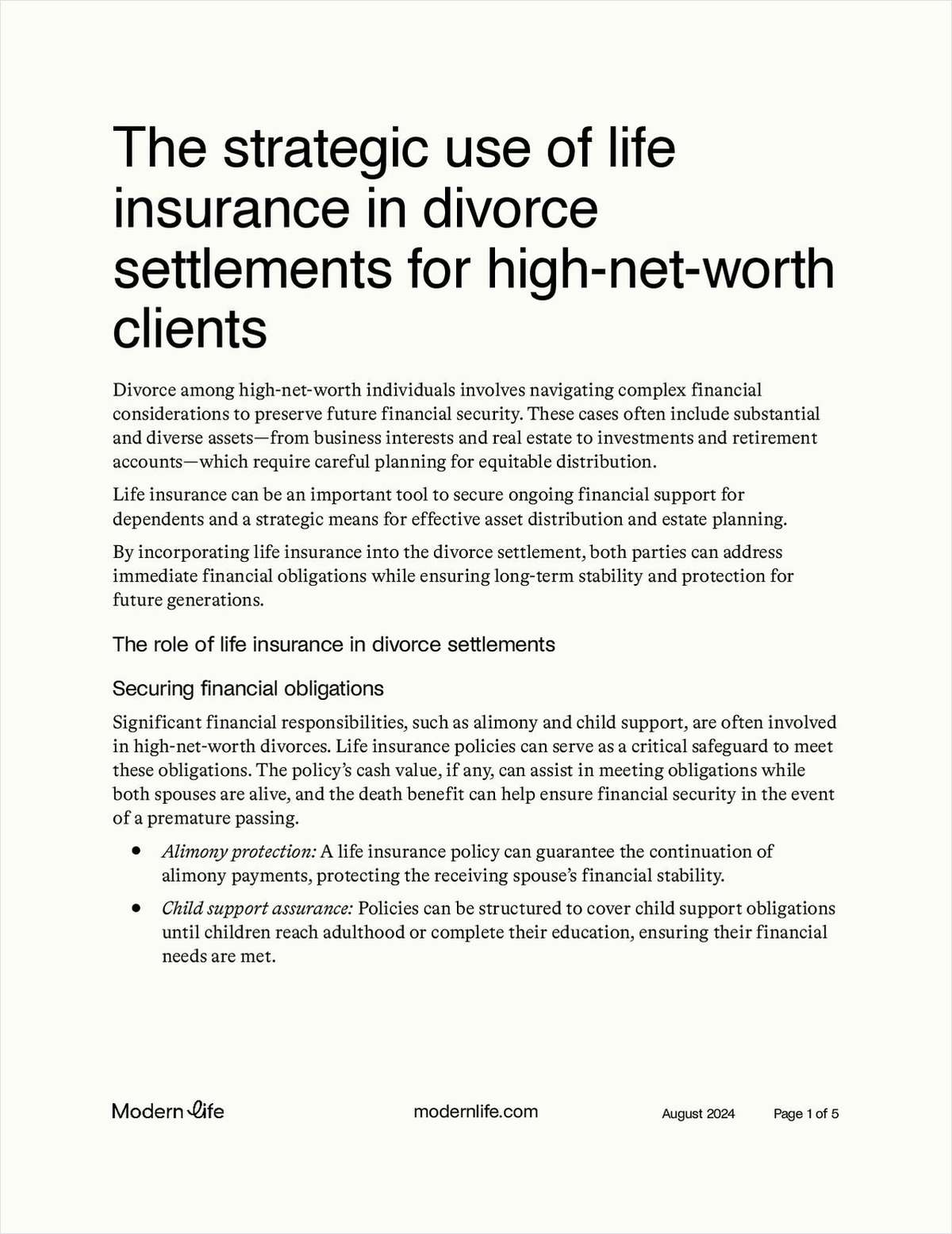North Dakota Insurance Commissioner Jim Poolman has released a new Viatical Settlements model act draft that would require most life insurance policy owners to hold policies 5 years before selling.
Poolman, chair of the Life & Annuities Committee at the National Association of Insurance Commissioners, Kansas City, Mo., has added a number of exceptions to the 5-year policy retention requirement.
To sell policies early, would-be viators would have to certify to a viatical settlement provider that they had met one or more of the following conditions:
- The policy was issued after the viator exercised conversion rights associated with a life insurance policy, and the old and new policies had provided 5 years of coverage.
- The viators had experienced life-changing events such as retirement from full employment.
- The viators had held the life insurance policies in question for at least 2 years, had paid for the coverage without use of "encumbered assets," and had participated in no agreement to have other parties buy the contracts.
Poolman also addresses topics such as viatical settlement compensation disclosure.
A viatical settlement broker or viatical settlement provider would have to tell viators about "any affiliations or contractual arrangements between the viatical settlement provider and the viatical settlement purchaser, including the amount and method of calculating the provider's compensation," according to the draft.



